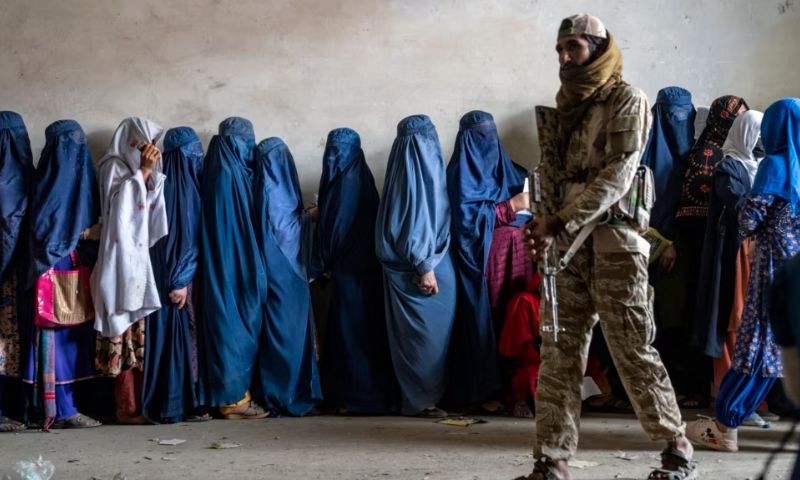KABUL: In recent years, Afghanistan has witnessed a heartbreaking surge in the number of women taking their own lives, a dire consequence of the Taliban’s restrictive regime.
This alarming trend reflects the profound impact of Taliban policies on women’s lives, leaving them with a grim choice between unbearable suffering and unimaginable despair.
Once filled with dreams of becoming a doctor, Latifa’s aspirations were shattered by the Taliban’s ban on education. Her trajectory took a dark turn when her family coerced her into a forced marriage with her heroin-addicted cousin. The 18-year-old faced a harrowing decision: to endure a life of misery or to end her own life. Sadly, she chose the latter, a tragedy that is far from isolated.
Since the Taliban’s resurgence in 2021, data collected from public hospitals and mental health clinics across a significant portion of Afghanistan’s provinces paints a grim picture. The statistics suggest a disturbing increase in the number of women taking their lives or attempting to do so. These figures, while partial, reveal an unsettling pattern: Afghanistan has become one of the few countries globally where more women than men die by suicide.
Regrettably, the Taliban authorities have refrained from publishing data on suicides, and they have prevented health workers from sharing up-to-date statistics in various provinces. Despite these challenges, health workers have bravely shared privately gathered figures for the period between August 2021 and August 2022. These figures underscore an urgent public health crisis, one that can no longer be ignored.
The available data showcases the breadth of the crisis across Afghanistan’s diverse regions, spanning different ethnic groups and ranging from rural areas to major cities. It’s a snapshot of a nation in turmoil, with its women caught in the crossfire.
Global statistics indicate that suicide claims the lives of more men than women, but Afghanistan’s situation paints a different narrative. Before 2019, men in Afghanistan outnumbered women in suicide rates, yet the current trend has reversed this pattern.
The silence from the Taliban is deafening; they have repeatedly declined to comment on suicide rates or the data collected for investigation. Across the 11 provinces surveyed, women and girls accounted for the majority of suicide deaths and attempts, with only one province defying this pattern due to unique circumstances.
The connection between the surge in female suicides and Taliban-imposed restrictions on women’s lives is undeniable. From education bans beyond elementary levels to limitations on work and access to public spaces, the Taliban’s policies have created an environment of hopelessness for Afghan women. UN officials and human rights activists have sounded the alarm, highlighting the nexus between women’s rights and the mental health crisis.
The tragic stories are as varied as they are heartbreaking. Women like Roya, trapped in abusive marriages and facing unspeakable suffering, have been driven to the brink. In a society where suicide is considered shameful, many of these cases go unreported, leaving families to grapple with their own pain and the stigma associated with these deaths.
Afghanistan’s history of conflict and poverty had already laid the groundwork for a mental health crisis before the Taliban’s resurgence. The loss of personal freedom, coupled with a rise in forced and underage marriages and domestic abuse, has only exacerbated the mental health vulnerabilities of Afghan women.
Efforts to address domestic violence had gained momentum under the previous government, offering a glimmer of hope for women. However, the Taliban’s ascent to power dismantled these efforts, leaving women trapped between a violent reality and a desperate escape.
As the international community grapples with how to respond to the evolving situation in Afghanistan, it’s imperative to address the mental health crisis that has emerged alongside the erosion of women’s rights. The stories of Latifa, Roya, and countless others underscore the urgent need for global attention and action to prevent further loss of life and to restore the dignity and agency of Afghan women.























